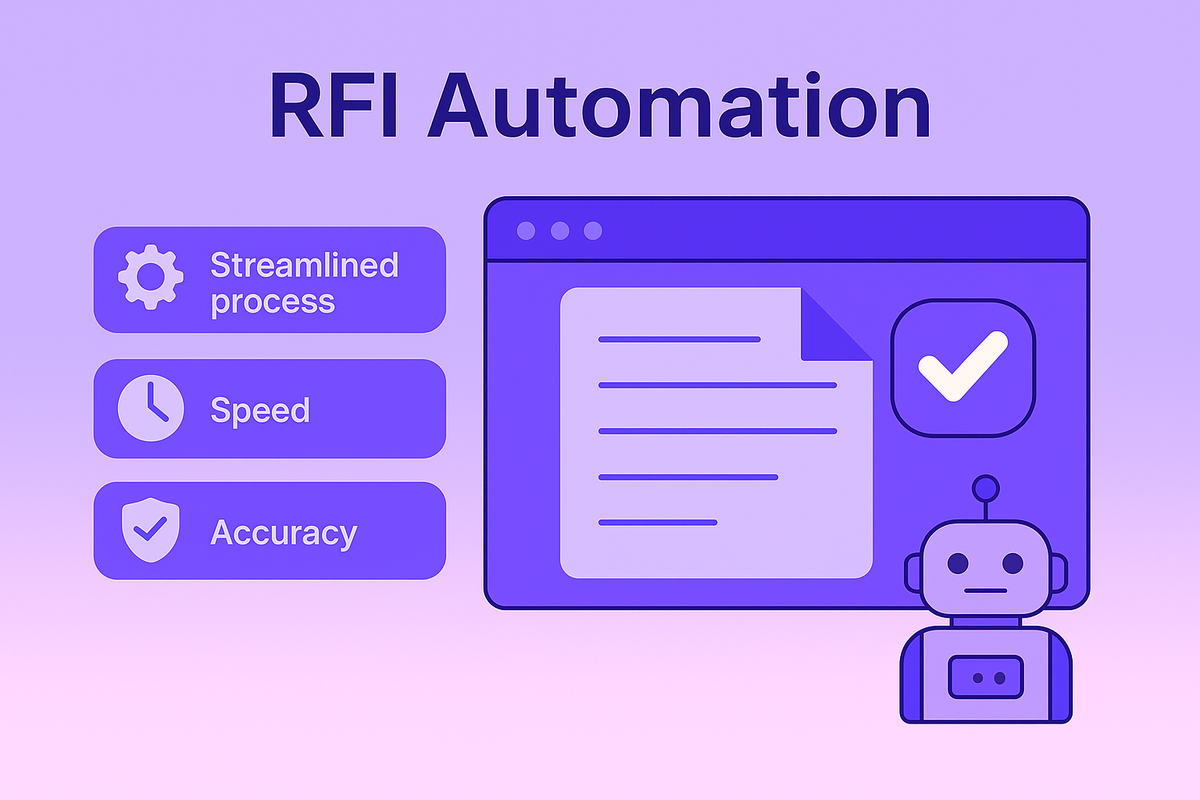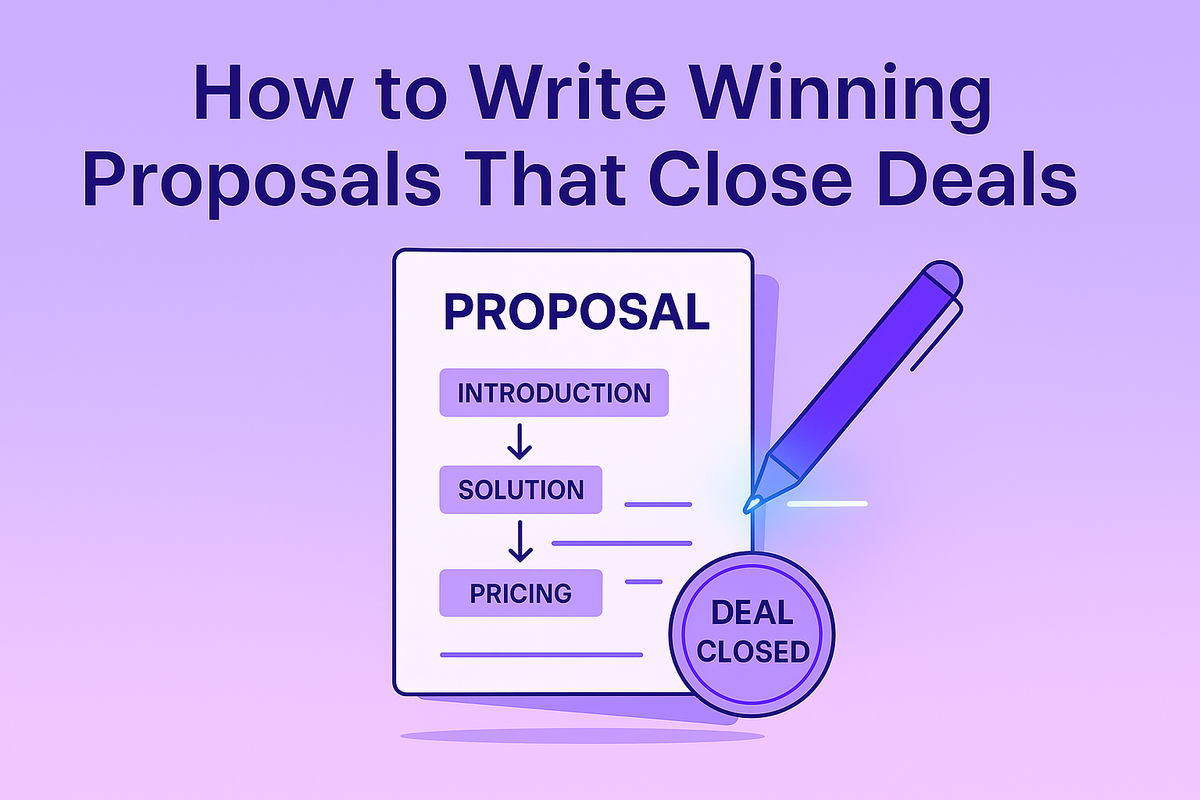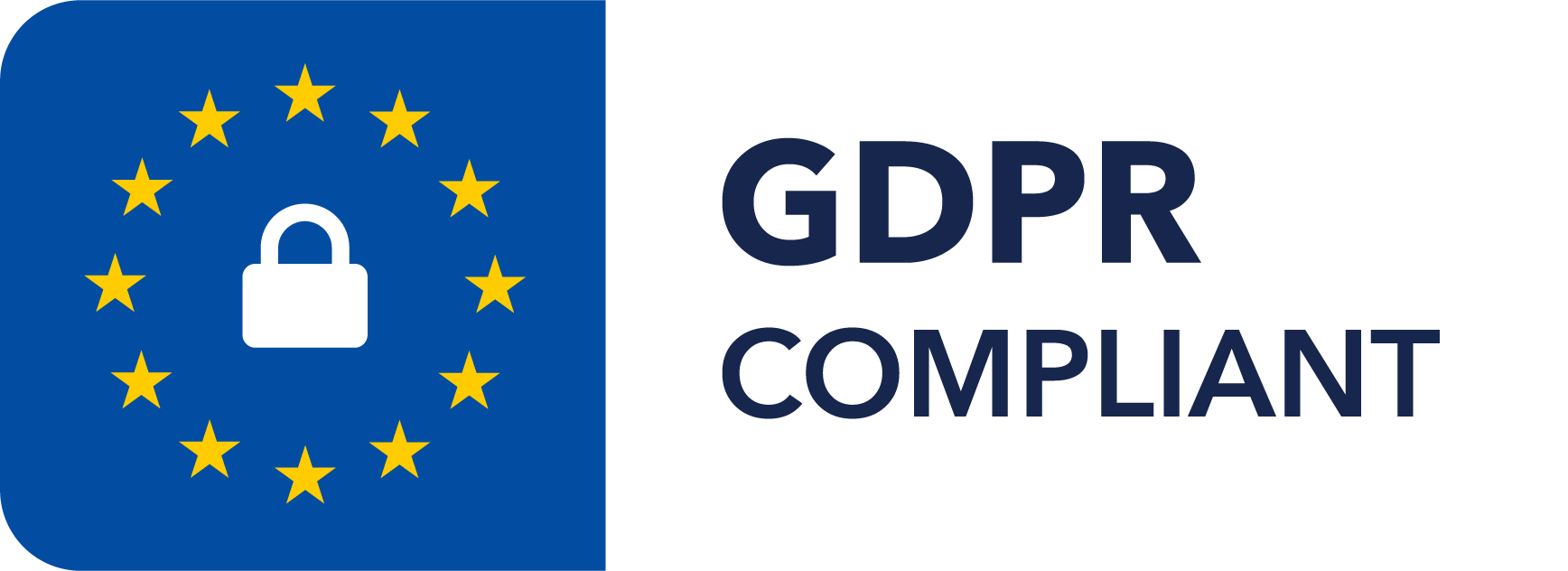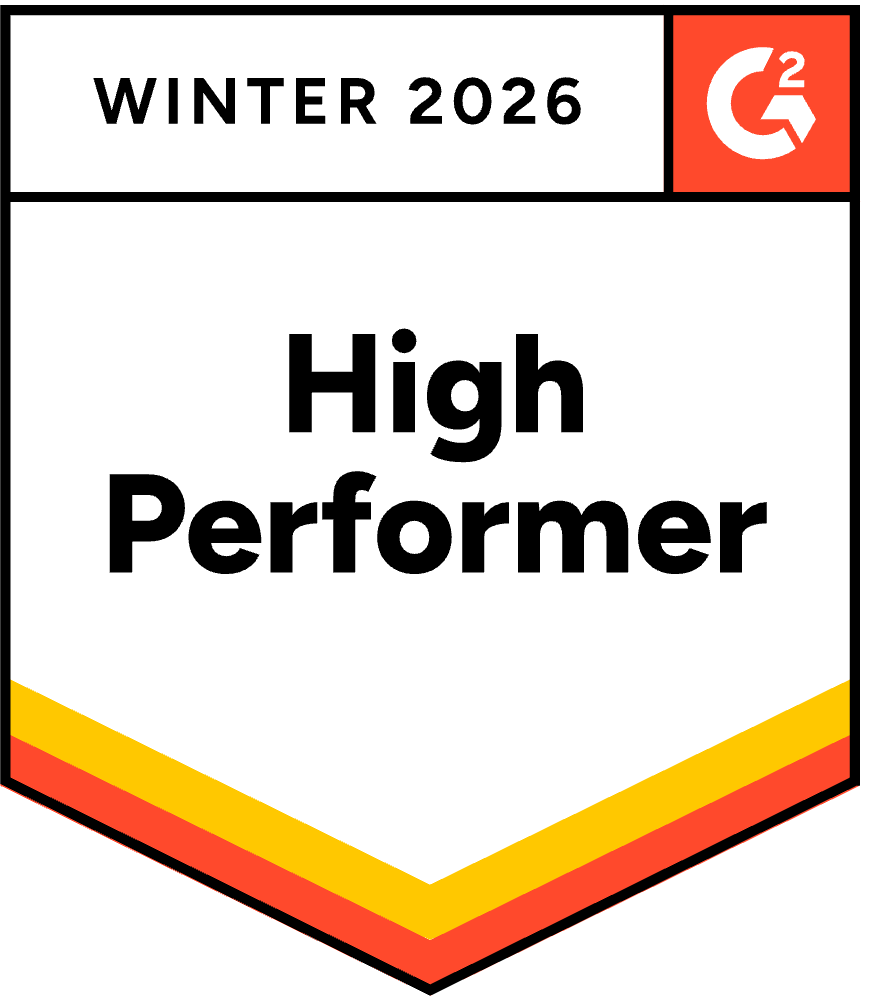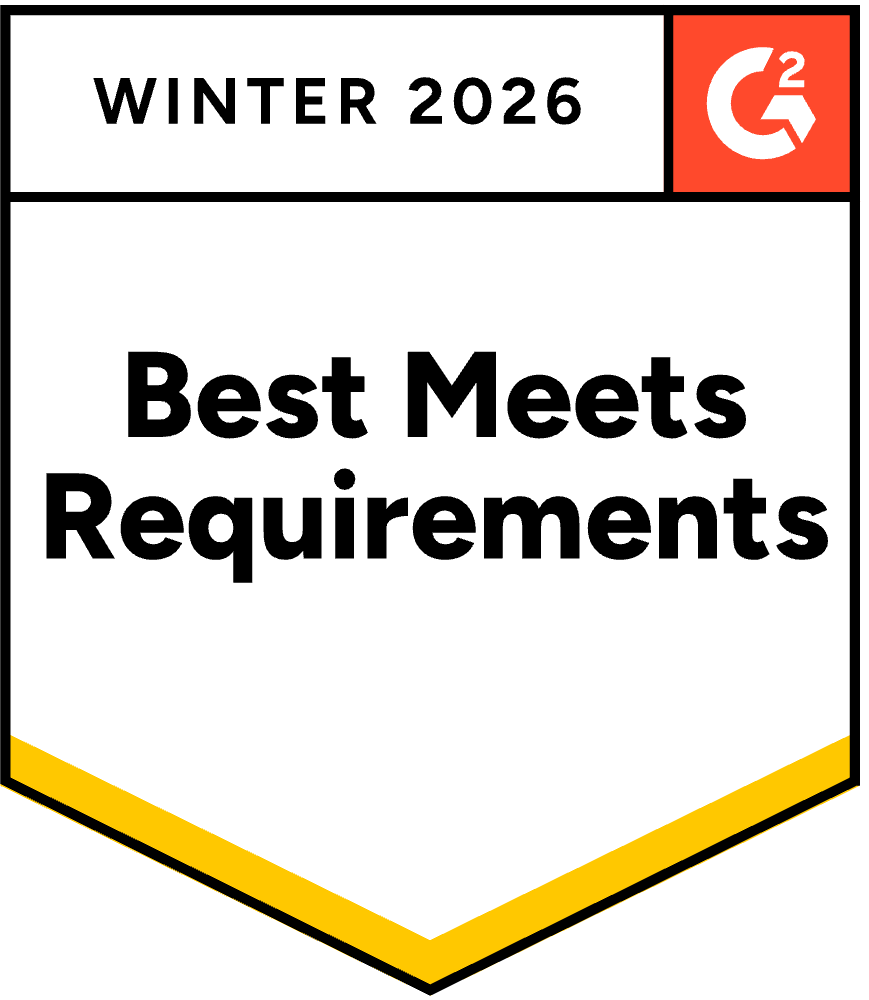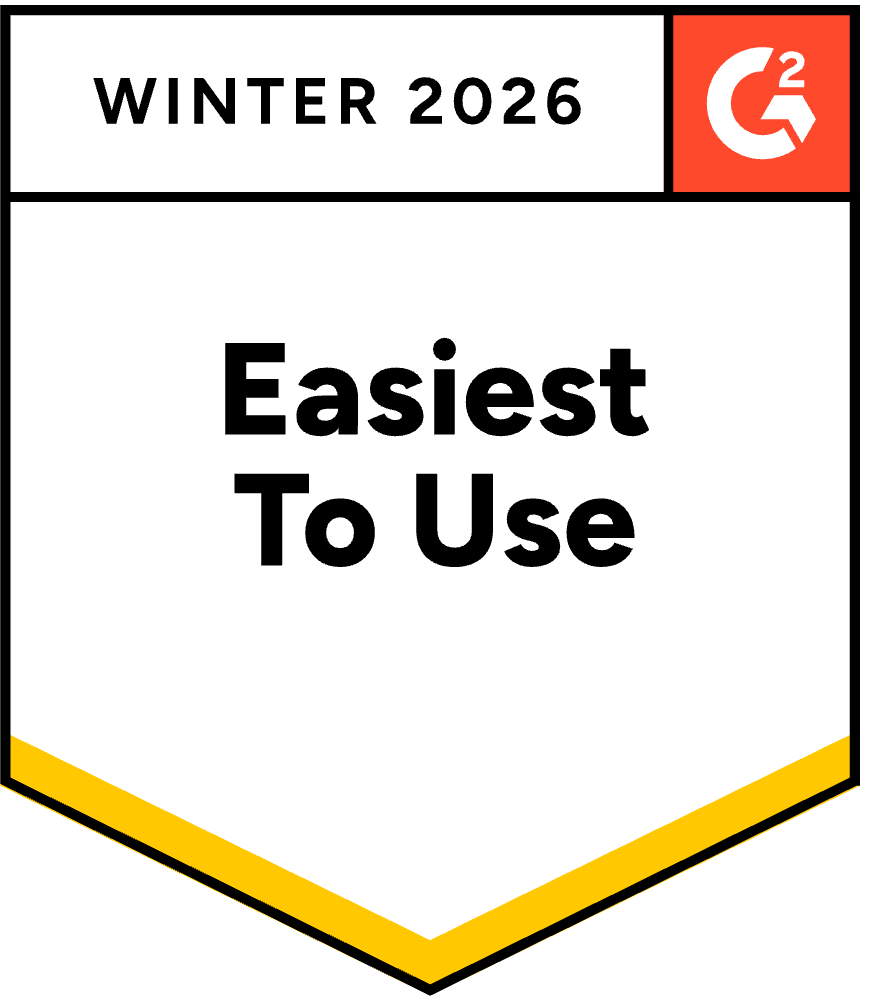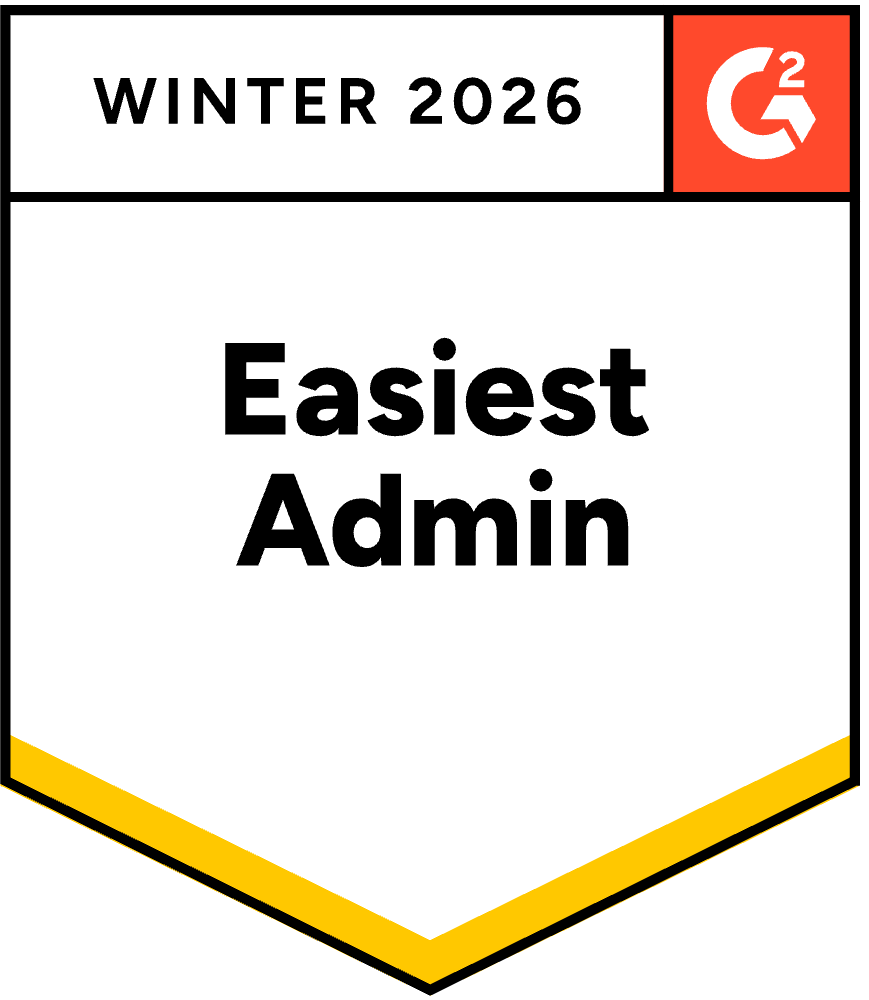AI vs. Template-Based Automation Tools for RFPs
June 5, 2025
By
Evie Secilmis
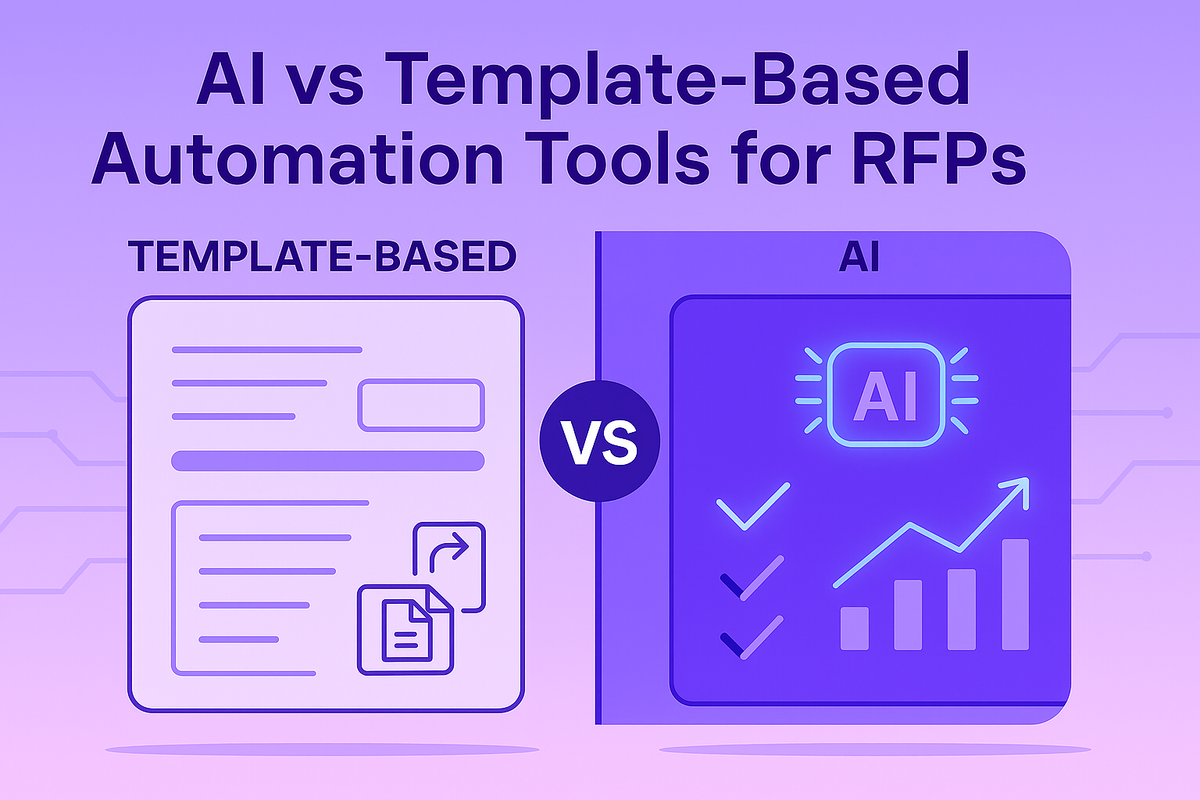
For years, content libraries and pre-written templates were the gold standard for RFP response tools. But as proposal cycles speed up and compliance demands rise, teams are learning the hard way that templates alone can’t scale.
Enter AI-first RFP software: tools that don’t just organize answers but actually help you generate them—fast, accurately, and in the right voice.
In this post, we’ll break down the difference between traditional template-based platforms and AI-first solutions like Iris. If you're in legal, presales, or proposal ops and wondering what really saves time and reduces risk, this guide is for you.
Who This Affects
Proposal Managers
- Pain Point: Managing outdated content and multiple versions.
- With Templates: Constant upkeep and review cycles.
- With AI: A dynamic knowledge base that updates automatically.
Sales Engineers
- Pain Point: Being pulled away from technical sales support to rewrite the same answers.
- With Templates: Stuck formatting and tweaking boilerplate.
- With AI: Pre-approved answers tailored for each buyer in seconds.
Legal & Compliance
- Pain Point: Risk of non-compliant or unverifiable language in customer-facing docs.
- With Templates: Manual clause reviews and version control challenges.
- With AI: Full audit trails, version history, and control over response content.
The Limitations of Template-Based Tools (and Why They Break at Scale)
Templates were designed for consistency—but they collapse under complexity.
As teams grow and regulations evolve, static content libraries become harder to manage. Every time a product spec changes or a clause gets updated, someone has to manually find and fix it in every document.
The result?
- Outdated content reused by accident.
- Inconsistent messaging across teams.
- Compliance risk from unverified or expired language.
Templates require constant human upkeep, and every “update cycle” pulls proposal managers and SMEs away from higher-value work.
What used to feel like efficiency now feels like maintenance.
When your team spends more time managing templates than responding to deals, you’re no longer scaling—you’re just surviving.
What an AI-First RFP Platform Actually Does Differently
AI-first RFP tools don’t just store answers—they understand them.
With Iris, every approved response becomes part of a living knowledge base. The system learns which answers perform best, automatically recommends updates, and tailors each draft to context, tone, and audience.
That means:
- You spend less time searching and more time refining.
- Every draft starts from your company’s most accurate, compliant version.
- Your content improves continuously instead of decaying over time.
AI-first also doesn’t mean “hands off.”
You’re still in control—approving, editing, and collaborating—but instead of starting at 0%, you’re starting at 80% complete, with AI handling the groundwork.
This approach doesn’t replace expertise—it amplifies it.
How AI Strengthens Collaboration Across Teams
Great RFPs aren’t written—they’re coordinated.
AI-first tools like Iris connect every stakeholder in real time. Sales can launch an RFP from Slack. Legal reviews clauses in Iris. Compliance sees everything in one place.
Instead of ping-ponging across email threads and shared drives, everyone works from a shared workspace—without slowing each other down.
How it helps:
- Async collaboration: Sales, legal, and compliance can work in parallel.
- Real-time visibility: Everyone sees updates instantly, no version confusion.
- Structured ownership: AI auto-routes questions to the right experts.
- Shared context: All edits, comments, and approvals live in one thread.
It’s collaboration without chaos—where visibility replaces micromanagement, and AI ensures progress never stops when someone’s out of office.
Security and Governance: Why AI Needs Guardrails
With AI in the mix, governance matters more than ever.
Iris is built for enterprise control: all responses are generated from your verified content library, never from public data. Every change is tracked with full audit trails and version history.
Key guardrails include:
- SOC 2 and GDPR compliance for all data handling
- Permission inheritance from your connected systems (like Slack, Confluence, and Notion)
- User-based access controls so only authorized roles can view or edit content
- Complete transparency into where AI suggestions originate
That means your AI can move fast—without ever stepping outside your compliance boundaries.
For teams in regulated industries, these safeguards aren’t optional—they’re essential. Iris ensures you can embrace AI innovation while maintaining the same level of rigor your legal and compliance teams expect.
Why It Matters Now
Compliance reviews are more rigorous. Buyer expectations are higher. And cross-functional collaboration is table stakes.
Teams using template-based tools often spend more time maintaining content than sending it. AI-first platforms flip that ratio—so you can focus on deals, not documents.
And with Iris, you get:
- AI-generated drafts tailored to your org’s tone and rules
- Custom personas for different audiences (Legal, Procurement, Technical)
- Audit trails to meet compliance standards without chasing approvals
- Integrated workflows (Slack, Salesforce, Chrome) for faster collaboration
Templates served a purpose. But if your team is still stuck in a patchwork of shared drives and outdated libraries, it might be time for an upgrade.
Discover how Iris’s RFP AI software helps teams respond faster, improve accuracy, and win more deals — learn more here.
Frequently Asked Questions
Q: Will AI-generated RFP responses really sound like our company’s voice?
A: Yes. Iris uses your approved content and brand guidelines to generate responses that match your tone, formatting, and compliance requirements—so every answer feels on-brand, not robotic.
Q: How does Iris handle compliance and version control?
A: Every piece of content in Iris is tracked with audit trails, version history, and user permissions. You’ll always know who changed what, when, and why—ensuring complete visibility and control.
Q: Is AI replacing proposal managers or just supporting them?
A: Iris is built to support your team, not replace it. By handling repetitive drafting and formatting tasks, Iris gives proposal managers and SMEs more time to focus on strategy, storytelling, and deal quality.
Share this post
Link copied!



